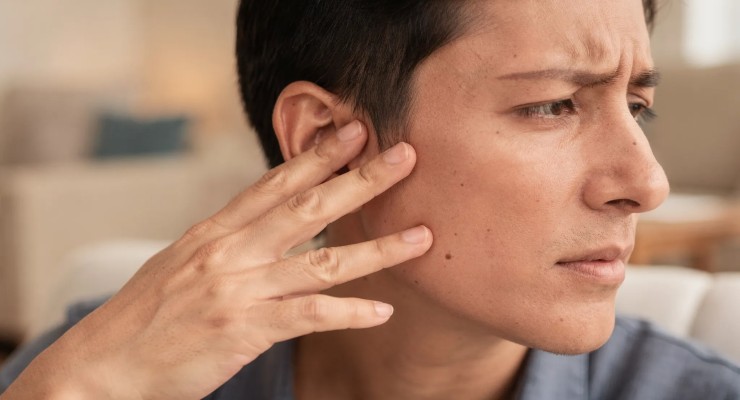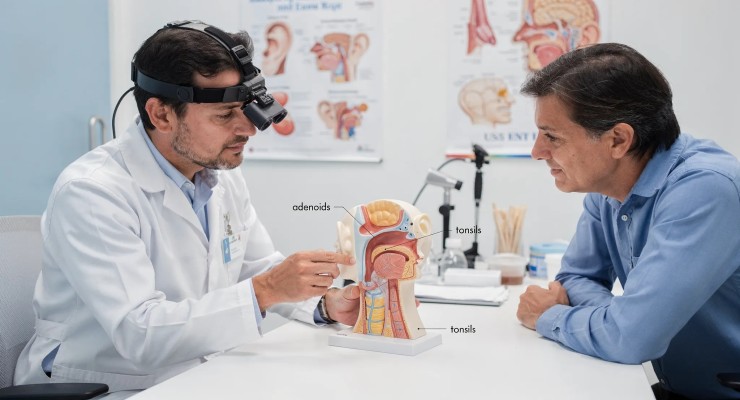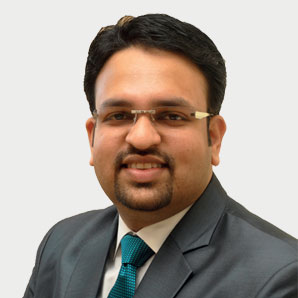Blogs
Snoring and Obstructive Sleep Apnea

Obstructive sleep apnea (OSA) is a condition in which your breathing pauses during sleep. This occurs because of narrowed or blocked airways. During sleep the muscles in your body relax, including those that help keep your throat and airway open for proper airflow into your lungs. Typically, the throat remains open enough during sleep to allow air to pass through. However, individuals with a narrow throat may experience a closure of the airway when the muscles in the upper throat relax leading to a condition known as apnea.
Obstructive Sleep Apnea (OSA) is characterized by loud snoring, which occurs when air struggles to pass through the narrowed or blocked airway. It is important to note that not everyone who snores suffers from sleep apnea.
In short, OSA is a condition where the relaxation of throat muscles during sleep causes a blockage in the airway, resulting in interrupted breathing and loud snoring. This disturbance results in fragmented, non restorative sleep. Patients with suspected OSA usually present with excessive daytime sleepiness, loud snoring, gasping, choking or breathing cessation while sleeping that is witnessed by a bed partner. Excessive daytime sleepiness is one of the most common symptoms. However, most patients are asymptomatic. Many patients only report daytime fatigue with or without other associated symptoms.OSA has significant implications for cardiovascular health, mental illness, quality of life and driving safety. It is essential to seek medical attention if you suspect you may have OSA to receive proper diagnosis and treatment. At Ascent Hospital, the best ENT hospital in Kerala, advanced diagnostic and treatment facilities are available to effectively manage Obstructive Sleep Apnea and improve overall sleep health.
Any adult patient with unexplained daytime or sleep-related symptoms such as excessive sleepiness, fatigue or unrefreshing sleep should be evaluated for sleep apnea. In addition, due to the high prevalence of OSA and disease burden patients with specific comorbidities such as refractory atrial fibrillation, resistant hypertension and a history of stroke can be screened for sleep apnea regardless of symptoms.
Nasal congestion (from allergies, colds or sinus infections), Obesity or excess weight, Poor muscle tone in the tongue or throat, Alcohol or sedative use before bedtime, Sleeping position especially lying on the back, Enlarged tonsils or adenoids, Deviated nasal septum or other structural nasal problems are all causes of snoring.
Investigations
Polysomnography /Sleep Study is the gold standard test for diagnosing obstructive sleep apnea.
Other diagnostic tests like Nasal endoscopy, Flexible Fiberoptic Nasopharyngolangoscopy, Cone beam CT scan…etc are required to find out the causes of obstruction in the airway.
Drug Induced Sleep Endoscopy is one of the most popular and novel tests done to see the site of obstruction during sleep. In this test the patient is sedated - mimicking the normal sleep and flexible endoscopy is done and the real time obstruction in the airway is examined when the patient is snoring.
Cine MRI/ Dynamic MRI is another test done to assess the airway and the amount of airway obstruction which is rarely done.
Treatment of OSA
Treating OSA is a multi-pronged approach and should be individualized for each patient. It is tailor made for each patient. It starts from very basic lifestyle changes to surgeries depending upon the patients and severity of disease.
1. Lifestyle Changes and Treating Underlying Medical Conditions
2. Positional Therapy
3. Positive Airway Pressure Therapy
4. Oral Appliance
5. Surgical Treatments
At Ascent ENT Hospital Kerala, our specialists offer comprehensive evaluation and customized treatment plans for Obstructive Sleep Apnea (OSA), ensuring long-term relief and improved sleep quality. As the Best ENT clinic in Kerala, we combine advanced diagnostic tools with personalized care to manage OSA effectively. Whether it’s through non-invasive therapies or surgical interventions, our team ensures every patient receives the most suitable and result-oriented treatment.
Lifestyle Tips to Reduce Snoring
Many people can reduce snoring through simple lifestyle changes, such as:
1. Maintain a Healthy Weight
Excess fat around the neck can compress airways and lead to snoring. Losing weight may significantly reduce or even stop snoring.
2. Sleep on Your Side
Sleeping on your back allows gravity to pull the tongue and soft tissues backward, blocking the airway. Side-sleeping can help keep airways open.
3. Avoid Alcohol and Sedatives Before Bed
These substances relax throat muscles increasing the likelihood of snoring. Avoid them at least 3-4 hours before bedtime.
4. Establish a Sleep Routine
A consistent sleep schedule improves sleep quality and may reduce snoring.
Surgical Treatment
It includes different surgeries to improve the airway ranging from Septoturbinoplasty to tongue base reduction and epiglottopexy depending on the site of obstruction in different patients.
Different Surgical Options are :
1. Anterior Palatoplasty
2. Uvulopalatopharyngoplasty
3. Barbed Pharyngoplasty
4. Expansion Sphincter Pharyngoplasty
5. Zetaplasty
6. Coblation/ Radiofrequency tongue base reduction
7. Epiglottopexy
In Ascent ENT Hospital, we have highly trained sleep surgeons who have received specialized training in sleep surgeries from leading experts in India and abroad. Our specialists are experienced in providing the highest standard of medical and surgical care for patients suffering from Obstructive Sleep Apnea (OSA). Book an appointment at Ascent Hospital and take the first step toward better sleep and healthier living today.
Share
Share on WhatsAppOur Professionals
Our Patient Stories
View All Testimonials









.jpeg)





































